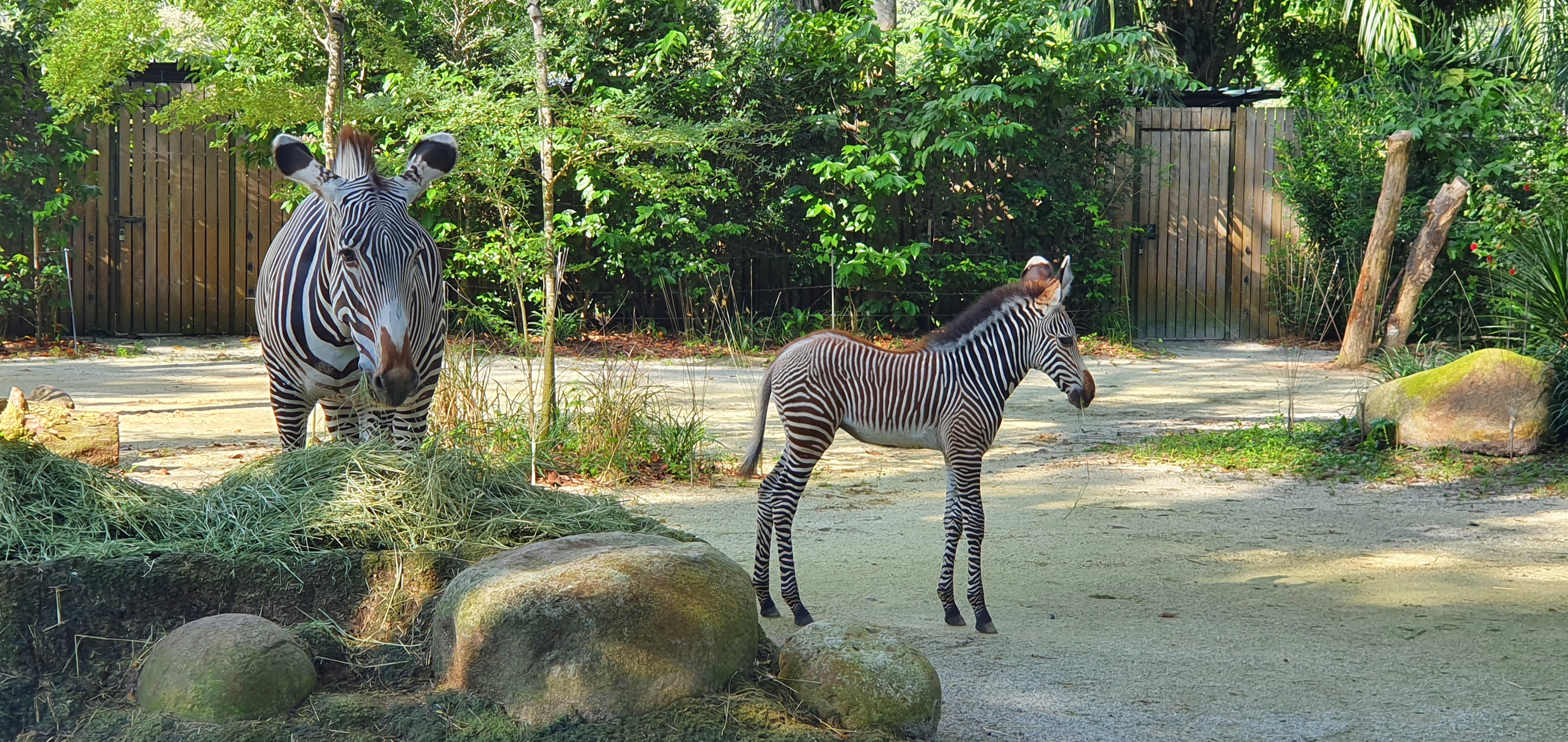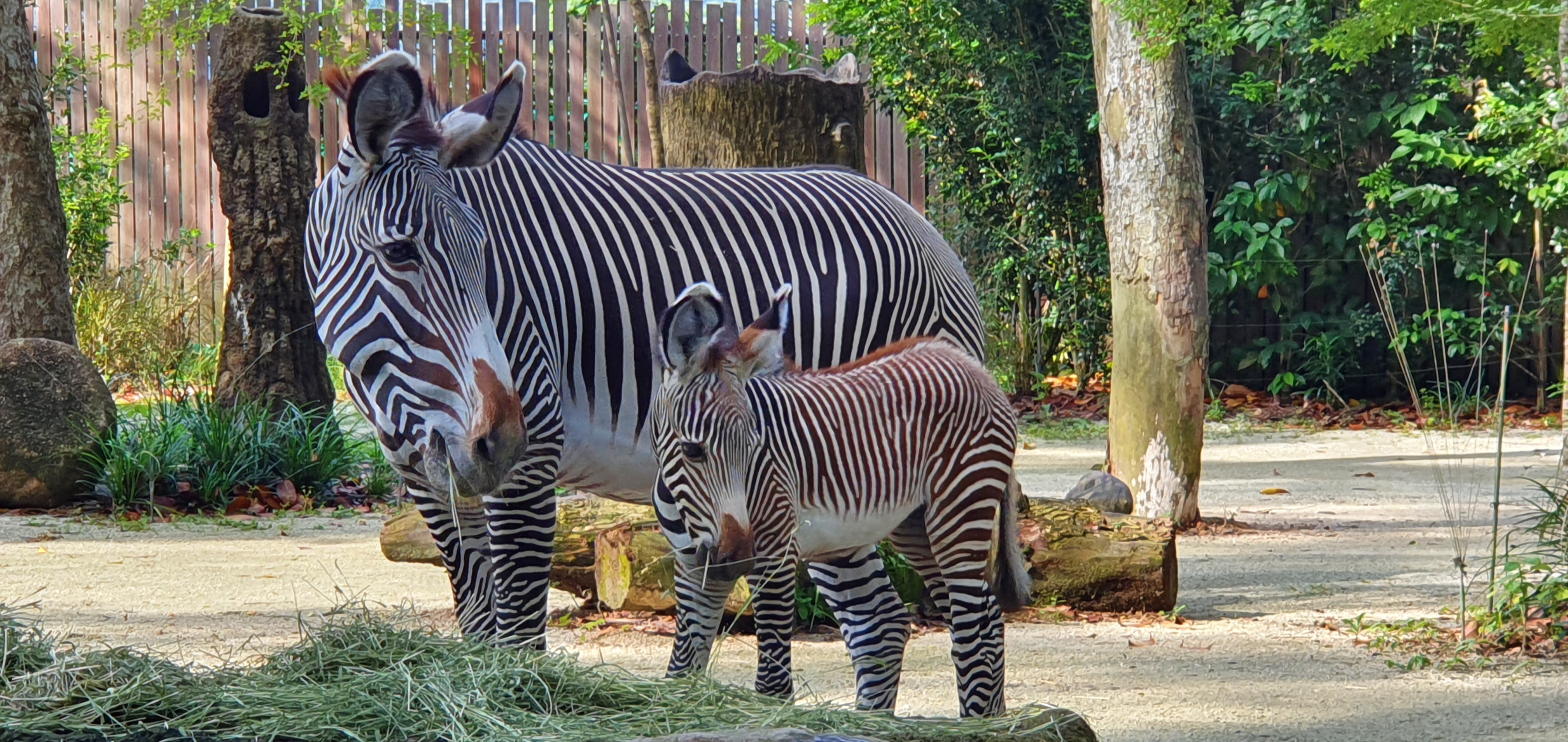Singapore Zoo has welcomed the birth of an endangered Grevy’s zebra foal, the first such instance in the zoo's history, and named her as Izara, which means star in Africa.
The birth comes one-and-a-half months after the arrival of another prominent black and white cub at sister park River Wonders, the authorities said.
Apart from dad Desta and mom Kolle, both six years old, the Zoo is also the home to two other females Jasiri and Moyo.
The adult herd arrived in Singapore in June 2020 from USA’s Tanganyika Wildlife Park. Under the care of Mandai Wildlife Group, the Grevy’s herd at Singapore Zoo is part of the European Association of Zoos and Aquaria (EAZA) ex-situ programme (EEP) for the species, which aims to maintain a healthy and sustainable population under human care for both conservation and educational purposes.
“Every birth is a celebration, and this healthy and active foal will play a part in contributing to the population under human care. With fewer than 2,000 left in the wild and just over 400 under human care, this new addition marks a monumental step in the protection of the endangered Grevy’s species,” said Dr Luis Carlos Neves, Vice President, Animal Care, Mandai Wildlife Group.
Grevy’s zebras are the largest and most endangered of the world’s three remaining zebra species (the other two being the plains and mountain), and they are found in isolated pockets of Ethiopia and Northern Kenya.
Wild populations have fallen by 85 per cent in the last 30 years with their decline attributed to a reduction of water sources, habitat loss, hunting and disease.




